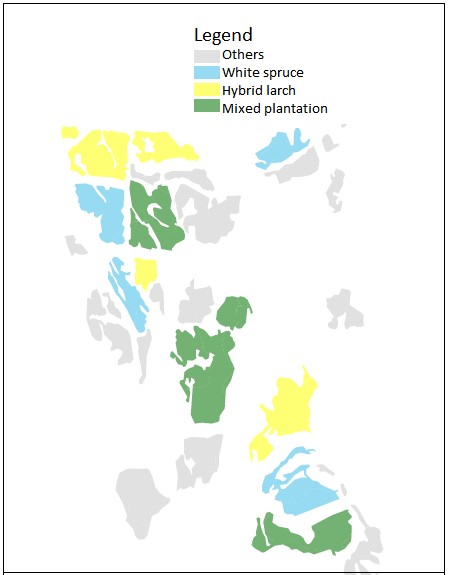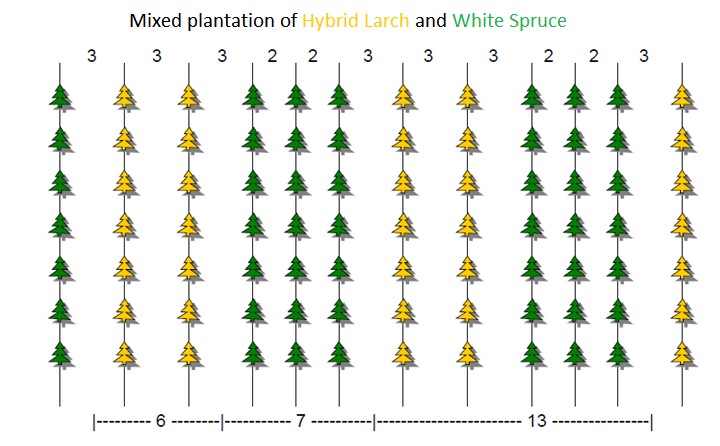Bessonne
The trees were planted in 2008 on public land in Bessonne ZEC after total harvest, close to La Tuque, a town to the north of Quebec city, eastern Canada, in transition biome from temperate to boreal forests.
The planted species were hybrid larch and white spruce. This plantation has two principal goals: to determine if mixed plantations have higher wood productivity compared to monocultures and to serve as an operational-scale demonstration of mixed plantation for the forestry industry.
This trial is linked to the
Design
Bessonne's trial has three treatments, which are repeated over three blocks. The first two are monocultures of hybrid larch and white spruce. The last one is a mixed plantation where two rows of hybrid larch alternate with three rows of white spruce.

|

|
| Scheme of the experimental setup |
Site characteristics
| location | Bessonne ZEC, La Tuque, Canada |
|---|---|
| former land use | forestry |
| altitude (m) | 500 |
| area (ha) | 9.6 |
| no of plots | 9 |
| plot size (m2) | 10 700 |
| no of trees planted | 17 000 |
| planting date | 2008 |
| diversity variables | species richness |
| diversity gradient | 1, 2 species | ,
| size species pool | 2 |
| species pool | Larix x mar schlinsii Coaz., Picea glauca |
| contact person | Alain Paquette |
Research
Instead of planting one species and increasing the homogeneity of the land, this plantation has two main species and is more heterogenous.
Management
The plantation is large, at operational scale for the forestry industry to evaluate the challenges at the operational and organisational levels. Thus, those challenges and needs could be identified from planting to harvest and tools could be developed for future mixed plantations.
Extra information
Contact info
For extra information you can send an e-mail to the contact person.
